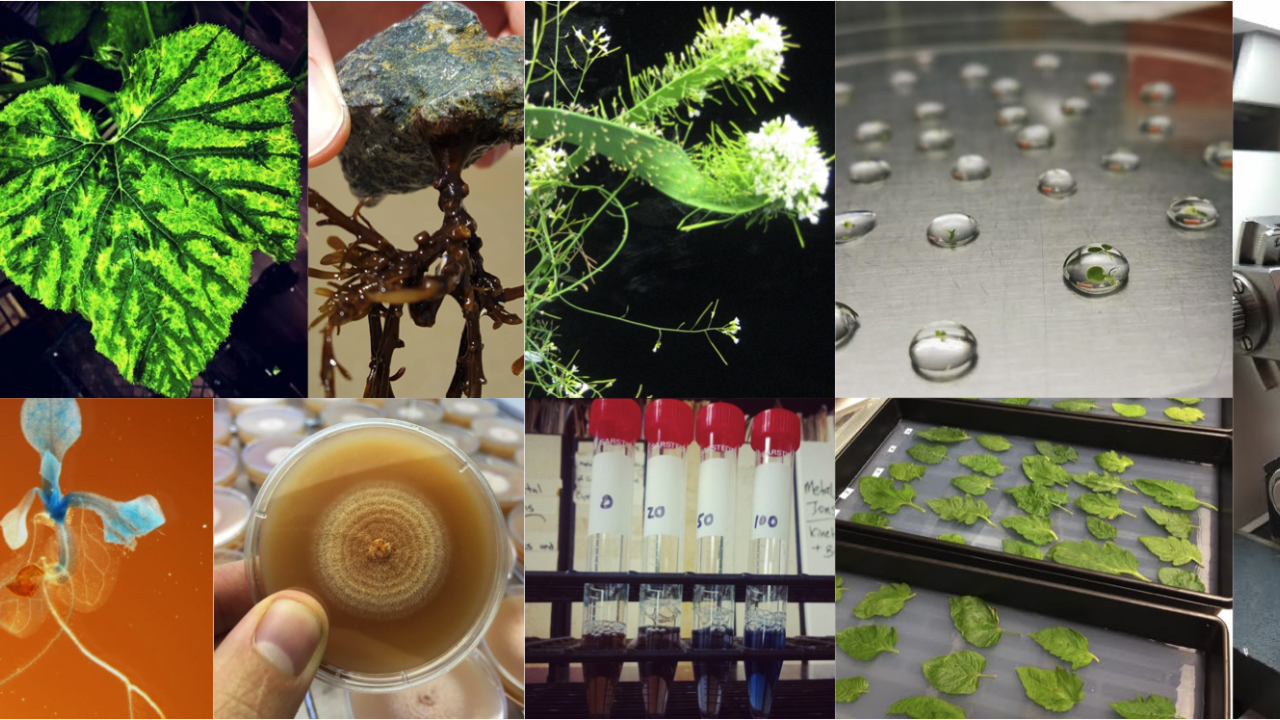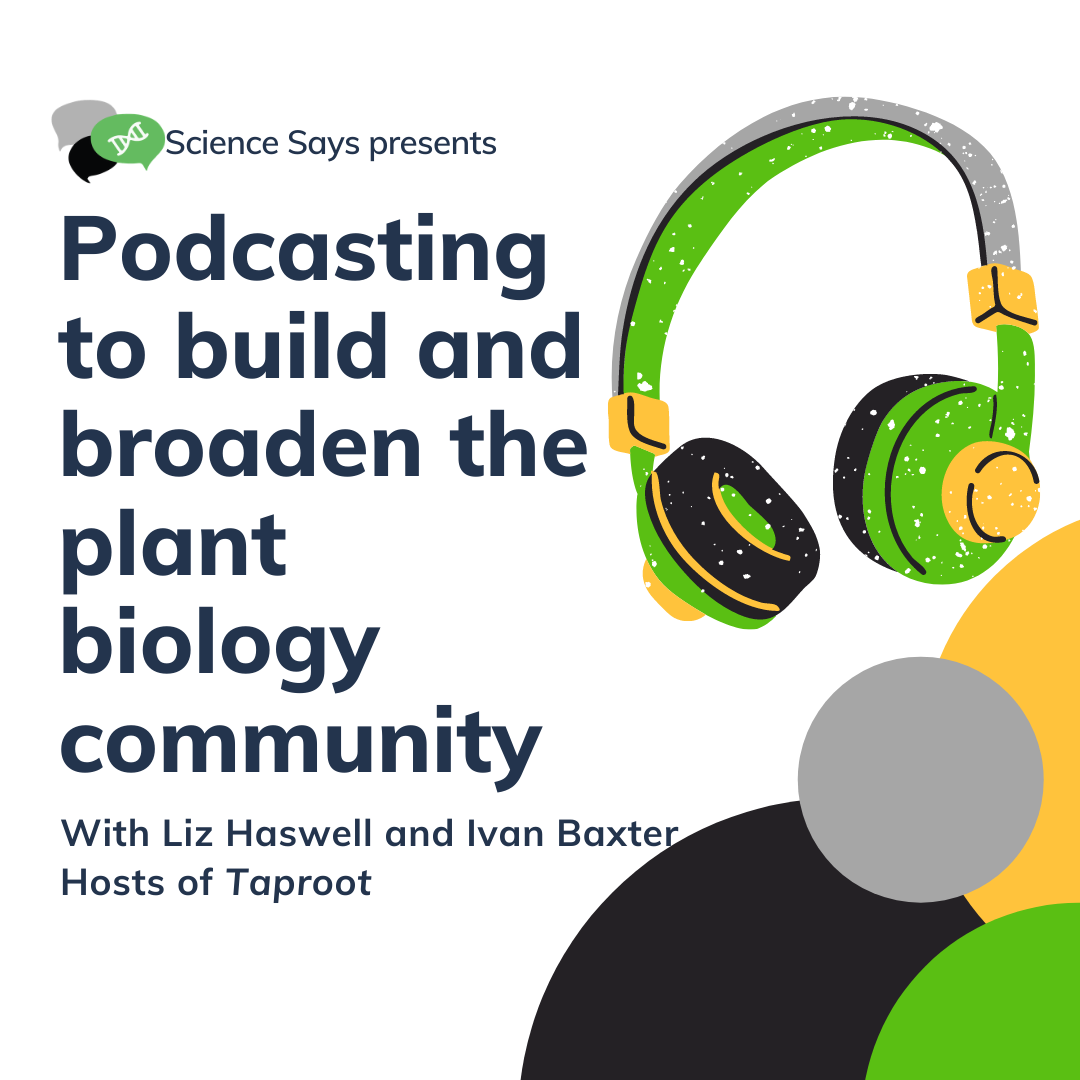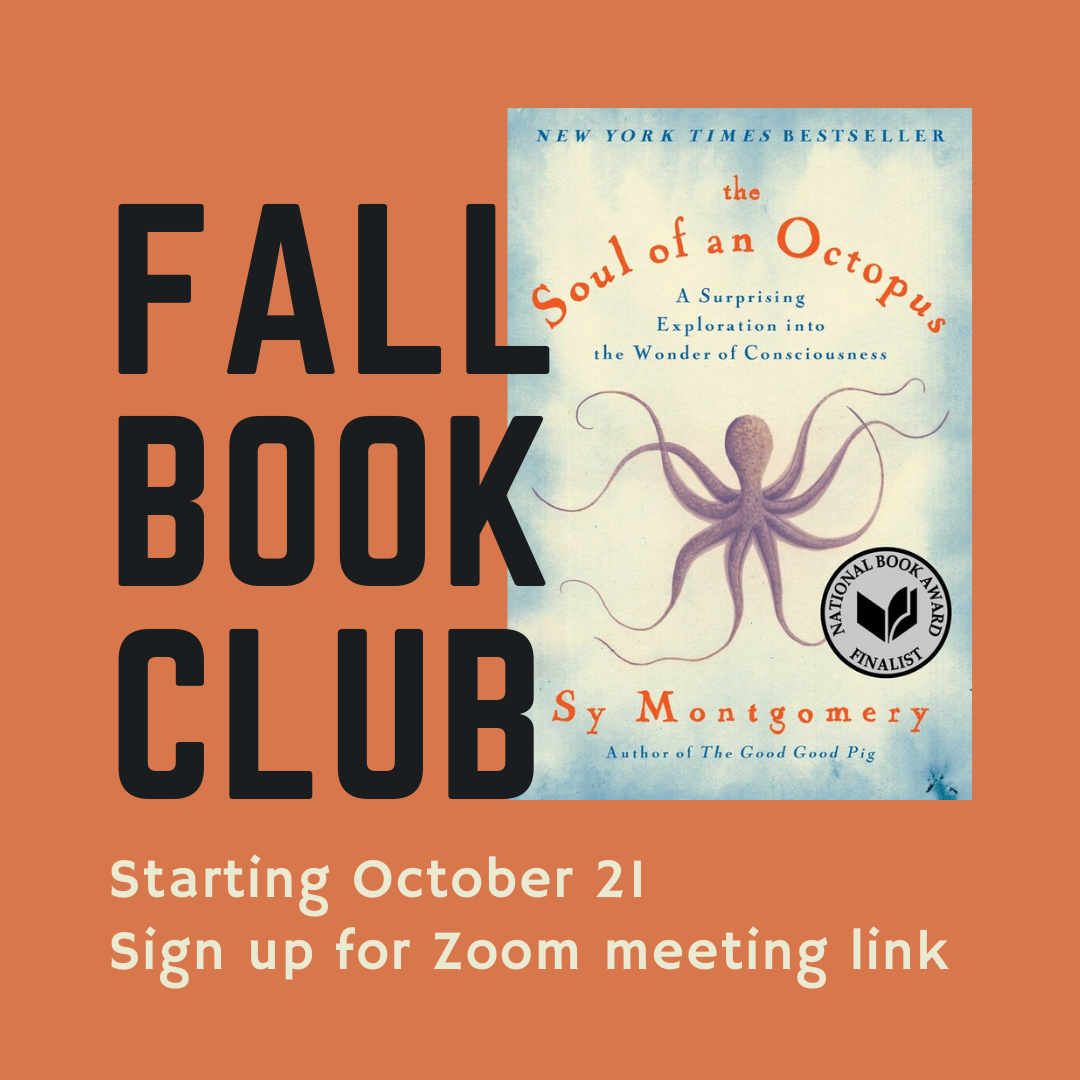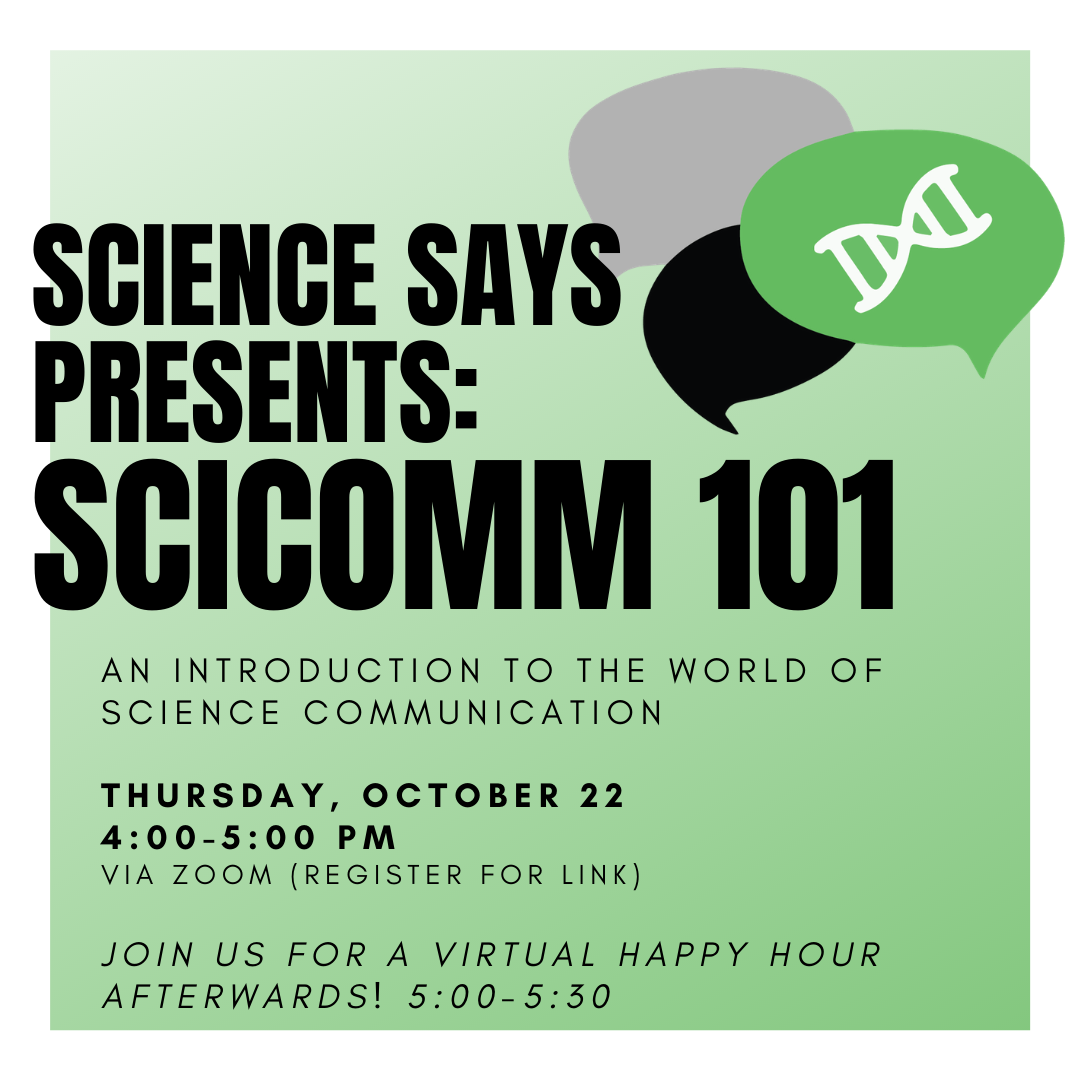
November Newsletter
November Newsletter
Hard to believe that we're halfway through the quarter. Check out what we have planned for the next month, and share widely!
 Podcasting Workshop
Podcasting Workshop
Our November workshop, "Podcasting to build and broaden the plant biology community" will feature podcasters Liz Haswell and Ivan Baxter, hosts of Taproot. They'll introduce us to some podcasting basics, and give tips for interviewing well.
Thursday, November 19
5:00-6:00 PM
via Zoom (register for link)
 Fall Book Club
Fall Book Club
We're reading The Soul of an Octopus by Sy Montgomery. Please join us in remote discussions this fall on Wednesdays from 6:30-7:30 pm. All are welcome!
Oct. 21, Nov. 4, Nov. 18, Dec 2
To learn more and get on the email list, check out the link below.
 Recap- SciComm 101
Recap- SciComm 101
Missed our science communication 101 presentation? Check out this recap of what we covered!
Sharing SciComm Projects
Do you have a cool science communication project you'd like to share? Are you interested in trying blog writing? Email us at davissciencesays@gmail.com
How does genetic transformation work? (Video)
Genetic transformation is a tool to study gene function, which helps scientists answer experimental questions and ultimately develop better crops. Join the Ronald Lab as we explore how we use genetic transformation to study rice, in order to develop better crops to feed the world.
Resources, Opportunities, and Virtual Events
Let us know if you hear about any resources or opportunities that our group may be interested in! davissciencesays@gmail.com
Discussion about racial justice
Our sister organization, CLEAR at UC Berkeley, will host a virtual chat with Dr. Michael Goodin that will interweave issues of racial injustice with science. "The Physics, Chemistry, and Reggae of Cultural Transformation: converting matter into energy" is open to all UC-affiliated faculty and students. Michael, a former Berkeley postdoc who grew up in Jamaica, is now a professor at the University of Kentucky. A prelude to the topics he will discuss is below:
"Sometimes we tell ourselves things that are perhaps one to three standard deviations from absolute truth, and that’s alright because humor, variance, and flexibility are essential to storytelling, poetry, and quality of life. For the past 400 years however, some have convinced themselves of things that are patently untrue that have necessitated numerous iterations of “Black Lives Matter” campaigns, all of which asked for nothing more than basic human dignities such as: we are not to be enslaved; we are more than three-fifths of a person; we are not to be lynched or segregated; and whistling at someone should not be a death-sentence for 14 year-old boys!"
Come think and talk through these issues with Michael.
Thursday, November 12th, 4:30-5:30pm via Zoom. Register for link.
AAAS Mass Media Science & Engineering Fellowship
This highly competitive program strengthens the connections between scientists and journalists by placing advanced undergraduate, graduate, and post-graduate level scientists, engineers, and mathematicians at media organizations nationwide. For 10 weeks during the summer, the AAAS Mass Media Science & Engineering Fellows collaborate with media professionals at radio and television stations, newspapers, and magazines. As part of their job, the scientists and their journalist-hosts strive to make science news easy for the public to understand. The program strives to improve public understanding of science by enhancing coverage of science-related issues in the media. By embedding science students and recent grads in media outlets, the Fellows learn how to communicate scientific topics in clear and engaging ways, better understand how science is covered in the media, and build up a professional network of scientists and journalists who can work together to share science effectively.
Application window: October 1, 2020 - January 1, 2021
Fellowship: June 2, 2021 - August 17, 2021
Science Says Resource Page
Looking for more resources? Check out the resource page on our website.

Comments